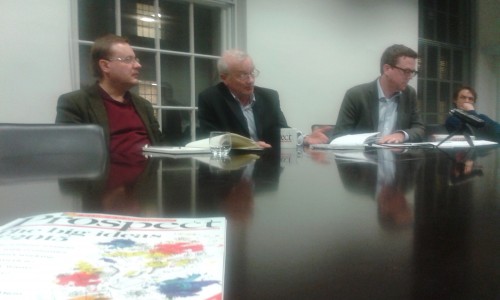Tag archives: weapons
Re-examining the decision to bomb Hiroshima

Not forgotten: The Hiroshima Peace Memorial is dedicated to the 140,000 people killed in the city. (Courtesty: iStockphoto/Colin13362)
By Hamish Johnston
Today marks the 70th anniversary of the bombing of Hiroshima – the first time that a nuclear weapon was used in war. Many argue that the bombing of Hiroshima, and three days later Nagasaki, was a necessary evil that saved hundreds of thousands of lives by ending the war and avoiding an allied invasion of Japan.
Over on The Nuclear Secrecy Blog, the science historian Alex Wellerstein asks “Were there alternatives to the atomic bombings?”. Wellerstein argues that the choice facing the US in 1945 was not as simple as whether to bomb or to invade. He points out that some physicists working on the Manhattan Project – which built the bombs – argued for a “technical demonstration” of the weapons.
In June 1945 the Nobel laureate James Franck and some colleagues wrote a report that argued that the bomb should first be demonstrated to the world by detonating it over a barren island. Wellerstein surmised that “If the Japanese still refused to surrender, then the further use of the weapon, and its further responsibility, could be considered by an informed world community”. Another idea being circulated at the time was a detonation high over Tokyo Bay that would be visible from the Imperial Palace but would result in far fewer casualties than at Hiroshima, where about 140,000 people were killed.
On the other hand, Wellerstein points out that Robert Oppenheimer and three Nobel laureates wrote a report that concluded “we can propose no technical demonstration likely to bring an end to the war; we see no acceptable alternative to direct military use”. This report was written for a US government committee, which decided to use the weapon against a “dual target” of military and civilian use.
View all posts by this author | View this author's profile
Was Bruno Pontecorvo a spy?

Reflecting on – Frank Close (centre) discusses the life of the Italian physicist Bruno Pontecorvo, who defected to the Soviet Union in 1950.
By Matin Durrani
Like all good publications, Prospect has a strapline about itself – “the leading magazine of ideas”. Physics World is also about ideas, although sadly our magazine, great though it is, doesn’t have adverts for Cartier watches, Embraer executive jets or the Taj Exotica Resort & Spa in the Maldives as Prospect does. Clearly, some people with ideas have more money to spend than others.
I was kindly invited last week by the deputy editor of Prospect, Jay Elwes, to an event he hosted at the magazine’s headquarters in central London. The event featured the University of Oxford physicist Frank Close, who has just published a new book on the life and times of Bruno Pontecorvo. Close was on hand to discuss the key themes of the book, which is entitled Half Life: the Divided Life of Bruno Pontecorvo. Elwes described the attendees as a “small, high-powered group”, including as it did Pauline Neville Jones, the former chair of the UK’s Joint Intelligence Committee and Jonathan Evans, the former director-general of the British security service MI5.